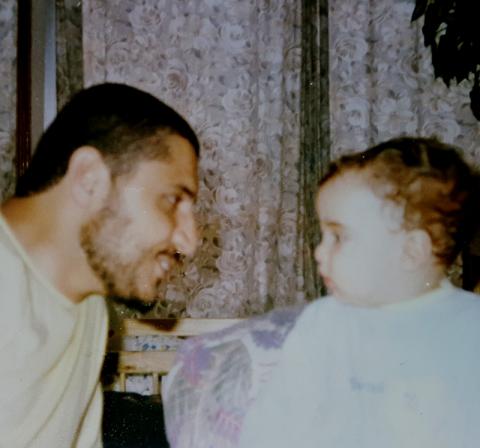
On Monday 7 September 2015, Djameleddine Laskri entered its 24th year of arbitrary detention. On 20 August 2015, Alkarama sent the United Nations Working Group on Arbitrary Detention (WGAD) a follow-up communication regarding the current situation of Djameleddine Laskri, a 55-year-old architect who spent the last 23 years in prison after having been sentenced to death in the case of "the Algiers airport". This followed a procedure where the defendant's most basic rights to a fair trial were violated by the Special Court of Algiers, at that time headed by judge Bouhlass Said, who was later promoted to President of the Court of Algiers.
The lawyers had boycotted the trial in protest against the multiple violations of rights of the defence and of the tortures the defendants had been subjected to, including inside the courthouse. Several prisoners condemned to death were indeed executed in particularly inhumane conditions in Tazoult (Lambèse) near Batna – and in the presence of judge Bouhlass Said. A de facto moratorium was subsequently established because of the strong criticism and protests then raised by NGOs and human rights activists.
On 30 April 2014 the UN experts seized by Alkarama stated in their Opinion N. 17/2014 that the detention of Laskri was arbitrary and called upon the Algerian authorities to release him immediately and unconditionally and to provide him with an effective remedy, including appropriate compensation. Nearly a year after the Working Group's decision, it is clear that the Algerian authorities have taken no follow-up action, as Mr. Laskri is still in detention.
Concerns about Laskri's fate
Alkarama shares the family's concerns about Laskri's fate, in particular in view of the severe tortures inflicted to him during his secret detention, which have left deep scars, resulting in irreversible repercussions on his health.
Although his family has forwarded the Working Group's Opinion to various competent authorities, including the Attorney General at the Court of Algiers, and requested his release pursuant to Ordinance N. 06-01 implementing the Charter for Peace and National Reconciliation, which is legally applicable to him, no action has yet been taken by the authorities. Exhausted by years of fighting for the release of her husband, Mrs Laskri claims to have "tried everything and knocked on every door, but it has been total silence on the part of the authorities."
His family still speculates about the real reasons for his continuing detention, since after the jury itself acquitted him of the charge of "use of explosives in public places", the judge decided to condemn him to death on the sole indictment of "belonging to a terrorist group."
Violation of international and domestic law
Alkarama also recalls that the Working Group itself considered in its Opinion N. 17/2014 that "delaying the release of a prisoner who has been amnestied or pardoned cannot be justified under international law", concluding that this continuing detention is now devoid of all domestic legal basis, as a result of the amnesty law that is legally applicable to him.
The continuing detention in violation of national law constitutes arbitrary detention, considered, including under Algerian law (in articles 108 and 109 of the Algerian penal code), as a crime punishable with up to 10 years in prison for those magistrates or officials responsible for it.
Steps taken by Alkarama
Alkarama therefore urged again the Working Group on Arbitrary Detention (WGAD) to remind the Algerian authorities of their national and international obligation to release Djameleddine Laskri immediately and to urge them to implement Opinion N. 17/2014and to grant "adequate and reasonable compensation to Mr. Laskri for the damages caused by his arbitrary deprivation of liberty for more than 21 years."
While the Working Group has been able to freely visit several countries in the region over the last few years, Algeria steadily ignored its requests for visits in 2009 and 2011. The persistence of the Algerian authorities to refuse to cooperate with UN bodies and to reject their requests denotes their total lack of will to cooperate and implement Algeria's international obligations to protect human rights.
For more information or an interview, please contact the media team at media@alkarama.org (Dir: +41 22 734 1008).
